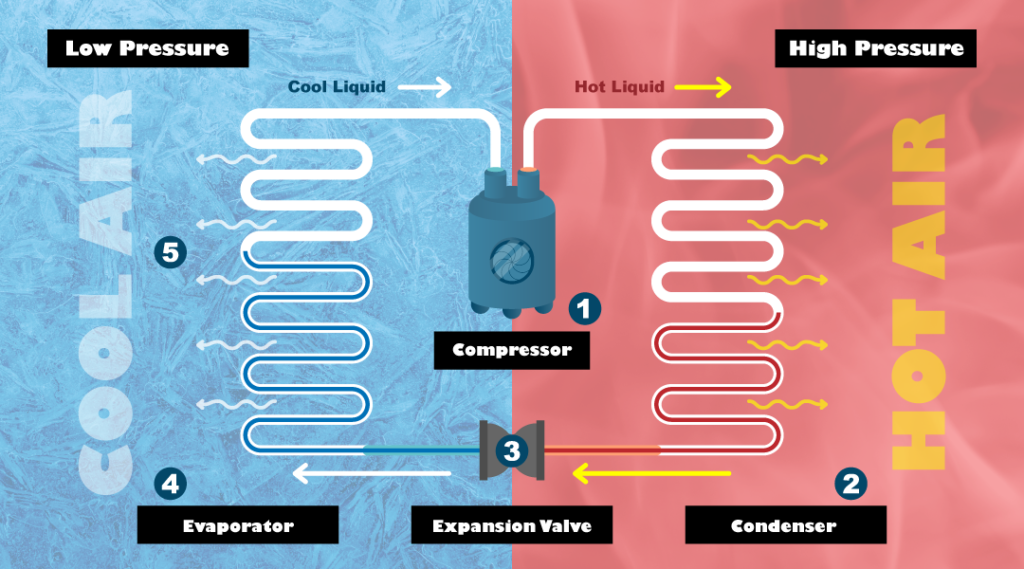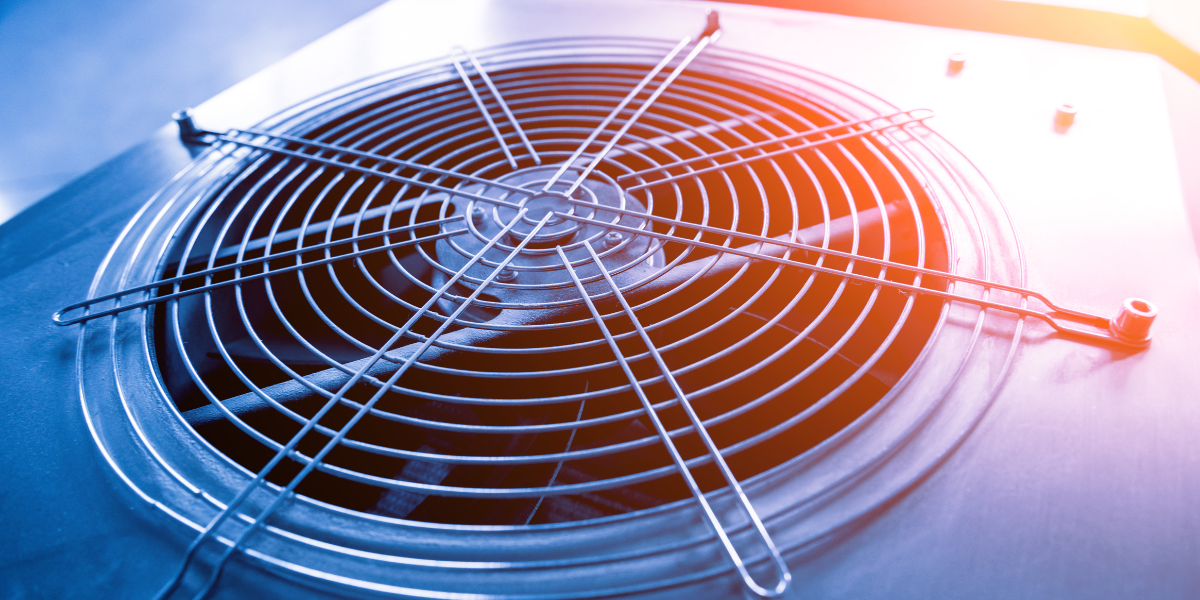Summer is a season many of us eagerly anticipate. It’s a time for activities, beach trips, and enjoying ice-cold drinks. However, when the scorching heat becomes unbearable, we seek refuge indoors where the cool air provided by our heating, ventilation, and air conditioning (HVAC) systems brings us comfort. But have you ever wondered how exactly these systems work to keep us cool during the summer? Let’s dive into the refrigeration cycle, the heart of the HVAC system, and explore the components and process behind cooling down the air in our homes or offices.
Need Help Choosing a New HVAC System? We’ve got the Guide for You!
Understanding the Refrigeration Cycle
The refrigeration cycle refers to the process by which an HVAC system cools the air. It is a continuous cycle that involves the circulation and transformation of a refrigerant—a chemical substance that absorbs and releases heat. The refrigeration cycle consists of four main components: the compressor, condenser, expansion valve, evaporator, and refrigerant.
1. Compressor
The compressor is the powerhouse of the refrigeration cycle. It pressurizes the refrigerant, increasing its temperature and pressure, and preparing it for the next stage.
2. Condenser
Next, the pressurized refrigerant reaches the condenser. This component dissipates heat from the refrigerant by transferring it to the surrounding air. As the refrigerant loses heat, it condenses and transforms from a gas to a liquid.
3. Expansion Valve
The refrigerant then passes through the expansion valve, which reduces the pressure. This sudden pressure drop causes the refrigerant to cool.
4. Evaporator
The cooled refrigerant enters the evaporator. As the refrigerant evaporates, it absorbs heat from the surrounding air, effectively cooling it down.
5. Refrigerant
Cooled air is then blown into our living spaces through vents or ducts. The refrigerant, now back in its gaseous state, returns to the compressor to begin the cycle anew.

Enhancing Energy Efficiency
Energy efficiency plays a crucial role in how well your HVAC system cools the summer heat. Proper maintenance is essential to ensure optimal performance and reduce energy consumption. Here are a few tips to improve the system’s efficiency:
- Change the air filters regularly to ensure proper air circulation and prevent dust buildup.
- Keep the outdoor unit clean and free from debris to enhance heat transfer.
- Seal any air leaks in your home to prevent cool air from escaping and hot air from entering.
- Use a programmable thermostat to regulate temperature settings and save energy when you’re not at home.
ALL Temp, Your Trusted HVAC Partner
ALL Temp Heating & Cooling is your trusted HVAC partner, dedicated to keeping you comfortable all year round. With our expertise, we ensure optimal performance of your heating, cooling, and indoor air quality systems. Our technicians are well-versed in the intricacies of the refrigeration cycle, so we can diagnose issues, provide maintenance, and deliver expert repairs to keep your HVAC system running smoothly. Whether you need efficient cooling during scorching summers or effective heating during chilly winters, ALL Temp Heating & Cooling has the skills and experience to meet your needs. Experience the savings and comfort by contacting us today and let us handle your HVAC needs with confidence.





